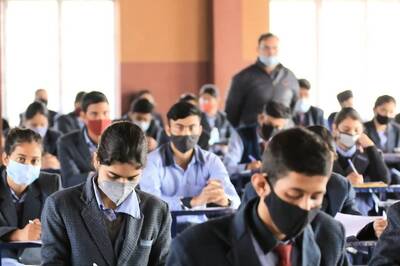
views
Sanaa: An al Qaeda group tightened its grip on a Yemeni coastal town while in the capital Sanaa a truce was holding on Sunday to end nearly a week of deadly street fighting that threatened to ignite a civil war.
Opposition leaders charged President Ali Abdullah Saleh with allowing the city of Zinjibar, on the Gulf of Aden, to fall to the militants in order to raise alarm in the region that would in turn translate to support for the president.
Armed men believed to be from al Qaeda appeared to have full control of Zinjibar, in the flashpoint province of Abyan.
"About 300 Islamic militants and al Qaeda men came into Zinjibar and took over everything on Friday," a resident said.
Opposition groups and diplomats have accused Saleh of using the al Qaeda threat to win aid and support from regional powers seeking his government's help in battling the militants.
There is growing concern that the Yemen-based al Qaeda in the Arabian Peninsula (AQAP) will exploit instability to build on its proven talent for daring bombing plots, analysts said.
Nearly 300 people have died over the past few months as the president has tried to stop pro-reform protests by force.
The United States and Saudi Arabia, both targets of foiled attacks by the AQAP, are worried that growing chaos could embolden the militant group.
Yemen borders Saudi Arabia, the world's biggest oil exporter, and sits along a shipping lane where about 3 million barrels of oil pass daily.
"Security withdrew and left the city of Zinjibar to armed Islamic elements that looted government institutions," Ali Dahams, a leftist opposition official in Abyan province, said.
The opposition groups have said they could do a better job of containing al Qaeda than the president.
"Now individuals from the army and tribesmen are engaged in confrontations with the armed elements," he said.
In Sanaa, pedestrians and cars returned to streets where pitched battles during nearly a week of fighting killed at least 115 people.
The latest violence, pitting Saleh's forces against members of the powerful Hashed tribe led by Sadeq al-Ahmar, was the bloodiest since pro-democracy unrest erupted in January and was sparked by Saleh's refusal to sign a power transfer deal.
Ahmar's men handed back control of a government building to mediators as part of the ceasefire deal, witnesses said.
It was the first building seized by the tribesmen that was handed back as part of the truce intended to normalise life in Sanaa, where fighting with machineguns, rocket-propelled grenades and mortars prompted thousands of residents to flee.
Electronics stores, perfume merchants and other businesses were open but there were few customers, with many residents keeping tight hold on their cash in case fighting flared back up and they needed to quickly buy essentials.
"Business is very bad. We have had to sack some workers. There is no money and I can't even afford to pay rent," merchant Muthar Abdel-Rahman said.
The truce extends to areas outside of Sanaa where tribesmen have clashed with the president's Republican Guards and air force fighters have strafed armed tribesman with bombs.
Some guard members in southern Damar at the weekend joined the opposition, tribal sources said.
Despite the truce, analysts are concerned fighting could flare again, given the animosity between the groups and growing popular anger at Saleh for not ending his nearly 33-year-long rule which has brought Yemen to the brink of financial ruin.
"We are still here to bring down this regime, even if it takes another week, another month or another year," Yusra al-Abssi said at a protest camp.
Yemen is the poorest country in the oil-rich Arabian Peninsula, with about 40 percent of its residents living on less than $2 a day.
"He and his family have exploited the wealth of the country for themselves," she said.
The crisis has cost the economy as much as $5 billion and immediate aid is needed to prevent a meltdown in a country with a nominal GDP of $31 billion, Yemen's trade minister told Reuters on Saturday.
The United States is concerned that tribal rivalries are complicating efforts to reach a power transfer deal and believes al Qaeda is trying to exploit instability there, senior US officials said on Saturday.
International negotiators have become exasperated with Saleh, saying he repeatedly has imposed new conditions each time a Gulf-led transition agreement was due for signing, most recently demanding a public signing ceremony.
But global powers have little leverage on events in Yemen, where tribal allegiances are the most powerful element in a volatile social fabric and the fighting already appears to be playing out along tribal, quasi-feudal lines.
















Comments
0 comment